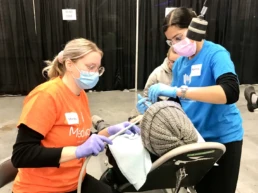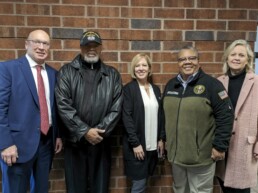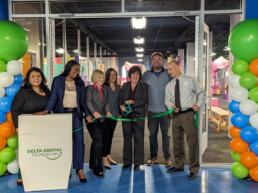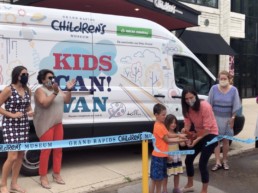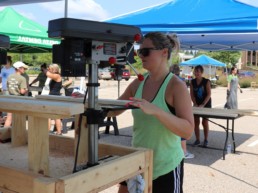Comfort and care down the hall
When fourth-grade twins Marcus and Marques have a toothache or a fever, help is just a short walk down their school hallway.
The Schiff Wellness Center, located at the Academy of World Languages in Cincinnati, Ohio, is home to the Delta Dental Center, a medical clinic, a vision clinic and coming soon, behavioral health services.
The Delta Dental Foundation provided support to equip the dental clinic, and it’s already making such a difference.
That difference is filling four cavities and capping a tooth in a comfortable, familiar environment for Marcus, whose previous dental visit was traumatic and tearful.
“We went to the dentist about two years ago, and he didn’t have a good experience, so we didn’t go back,” says mom Elaine McGhee, who is thankful for the dental clinic staff and their expert care. “I really did not know when I was going to take them back to the dentist, so having this clinic open has helped tremendously.”
I don’t want them to miss school. I want them to be here every day if they can, and I just feel better if the whole team knows what’s going on.
—Elaine McGhee
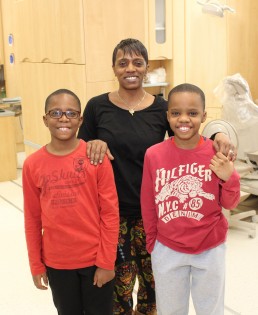
The Academy of World Languages is organized as a community learning center—a hub in the neighborhood—with wrap-around services designed to meet the needs of the community.
Though the Schiff Wellness Center is connected to the school on one side, a separate main entrance for the public makes it look like a standalone building, and everyone is welcome. Adults without connections to the school are invited. Students from nearby schools are bused in.
The clinics accept Medicaid and private insurance, and they have a sliding fee schedule, so everyone who needs help gets it.
“Because we’re a federally qualified health center, it allows people to get services that they otherwise wouldn’t be able to afford,” says Nancy Carter, associate dental director for the Cincinnati Health Department. “It keeps them from making hard choices.”
While the wellness center serves the entire community, its first responsibility is to the Academy of World Languages, where the population is approximately half immigrants or refugees. About 30 languages are spoken among the students and staff.
Teachers embrace the wellness center, because having health services within easy reach means students spend more time learning. Before the clinics opened, parents often would take their entire family out of school for just one child’s appointment so the siblings could serve as interpreters. Now students can visit the dentist or doctor and then go right back to class.
Elaine values having her sons’ teachers just down the hallway so she can let them know about a health issue or get the boys’ homework for them if they are too ill to return to class.
“I don’t want them to miss school,” she says. “I want them to be here every day if they can, and I just feel better if the whole team knows what’s going on.”
The wellness center staff embraces this family feel and values being able to complement the students’ education with comprehensive health care. They like to think of it as the children having lots of moms and dads, all looking out for their education and their oral and overall health.
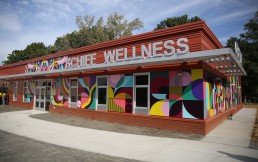
Because we’re a federally qualified health center, it allows people to get services that they otherwise wouldn’t be able to afford.
—Nancy Carter, associate dental director for the Cincinnati Health Department
